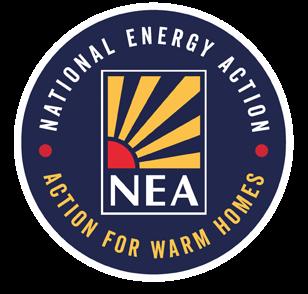

Our fundraisers take on the Great North Run
28 runners join #TeamNEA to raise vital funds to support our
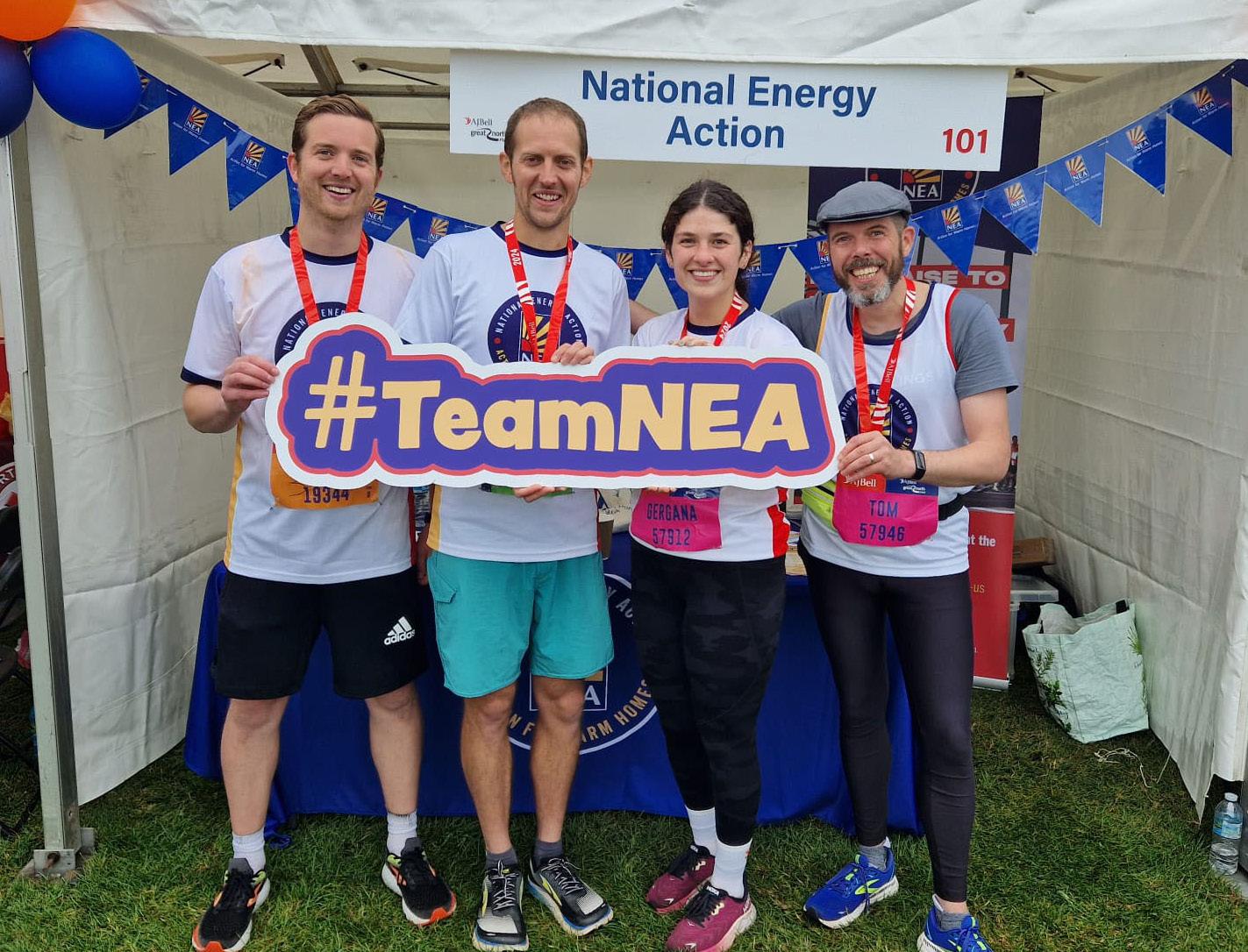

The weather didn’t dampen the spirits of our amazing #TeamNEA runners as they conquered the Great North Run. To see the photos and read about some unique fundraising events, go to our spread on page nine.
This is the first issue since the election of a Labour government. On page three, see the state of play for fuel poverty policy as we approach winter with a nearly 10% price cap rise and the Winter Fuel Payment becoming means tested.
National Energy Action is proud to announce that we are launching two new pilot Community Retrofit Hubs in Burnley and Sheffield. Read about this new project on page four to see how it will support fuel-poor households in taking advantage of existing and new energy efficiency retrofit schemes.
WHAT’S IN THIS ISSUE Danni Barnes
Our clients are key to all we do. In this edition, we share Maria’s story from our new Lived Experience Library and invite members to get in touch to see how we can best share the insights from this valuable resource. See page six.
We hope to see you at our upcoming Annual Conference in January at Liverpool’s Camp and Furness. Read on page eight to see details on this and on our Fuel Poverty Awareness Day campaign, taking place on 27 November. We finish with another bumper crop of members’ updates from across the country. Thank you so much for every contribution to this issue. If you would like an update included in the next issue, then please send them to focus@nea.org. uk by 22 November.
Danni Barnes Director of Development and Partnerships National Energy Action

CONTENTS
03: Policy in Focus
This winter: energy bill rise and support falls off
04: Project in Focus
National Energy Action’s Community Retrofit Hub project and Warm Homes, Healthy Futures
06: Insights in Focus
The heart of what we do: National Energy Action’s Lived Experience Library
07: Forums in Focus
Insights from the first round of Fuel Poverty Forums
08: Research in Focus
Get involved in the North East Fuel Poverty Alliance
09: Events in Focus
Family days, corporate volunteering, fundraising and Great North Run
12: Members in Focus
Updates from Lightning Reach, British Gas Energy Trust, Centre for Sustinable Energy and more.
About Fuel Poverty Focus
Fuel Poverty Focus is the quarterly magazine, produced by National Energy Action, for its members. If you have content ideas for next issue and beyond please email focus@nea.org.uk
Newcastle Head Office West One, Forth Banks, Newcastle upon Tyne. NE1 3PA

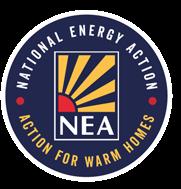
This winter: energy bills rise as support falls off
National Energy Action Head of Policy and Public Affairs Matt Copeland considers the state of affairs for fuel poor households in the UK ahead of winter, amid bill rises and the change in the Winter Fuel Payment
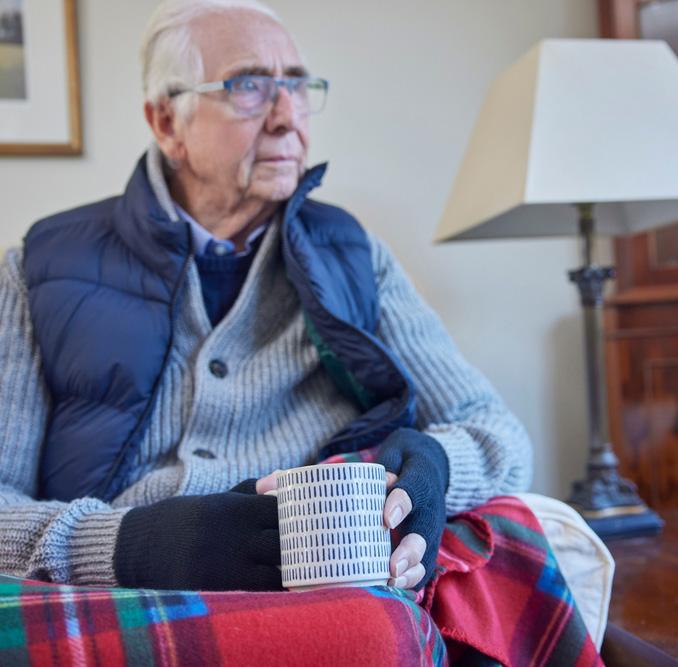
Energy prices have been high since 2021. While it seems that the exceptional spikes of the winter of 2021-22 are now behind us, analysts continue to predict that energy prices will remain relatively high for the remainder of the decade. Ofgem has confirmed that this is true for this winter at least, announcing the new level of the energy price cap. This new level is an increase of 10%. It means that the typical household will pay more than £1,700/year for its energy from October onwards. National Energy Action estimates this will push the number of UK households in fuel poverty up to 6 million.
Winter Fuel Payment becomes means tested
This comes at the same time as the UK government has had to make tough decisions about public spending. One of the main decisions made was to change who receives the winter fuel payment, a £200 to £300 income supplement given to pensioners to help them with their heating bills. Going forward, the UK government has decided that it will constrain these payments only to those in receipt of pension credit. Organisations across the country who support low-income households have reacted to this, saying that almost one million pensioners qualify for pension credit but do not claim it, meaning that they would miss out on the
payment. Age UK says that there are a further 1 million poor pensioners, who do not qualify for pension credit, who now miss out.
The UK government has talked about its plans for GB Energy, and its Warm Homes Plan to address the cost of energy for households. We expect that these will have a positive impact. But not this winter, and maybe not for years after that. You cannot insulate millions of fuel poor homes in just a couple of years.
The government is therefore coming under significant pressure to reverse its decision on Winter Fuel Payments. Charities supporting older people are asking the government to think again. Age UK has set up a petition to this effect, gaining almost half a million signatures (at the time of writing). MPs have also raised concern. Conservative MPs have been vocal in opposing the move, while some Labour backbenchers have also expressed concern (albeit this has often been anonymous or private).
Low-income households need additional targeted support
Our approach to this double whammy of increasing prices and reduced support has been slightly different. With its significant majority, and at the beginning of a five-year term, the UK government has significant power in its decision making. It seems unlikely that they will be open to u-turning on this decision. But even if they did, it would not be enough. It is not only pensioners that will struggle this winter. Working-age households are also facing significant difficulties. One-third of fuel poor households do not receive benefits, and wages have struggled to keep pace with inflation. We need to find a way to support pensioners and working-age households this winter.
This is therefore the basis of our upcoming submission to the October Budget. Leveraging the savings made by cutting the Winter Fuel Payment by providing a greater level of support, targeted on those most in need. But we cannot take our eyes off the biggest prize of all.
We will also be setting out our expectation of the highly anticipated Warm Homes Plan, a Labour Manifesto pledge. How this £12bn will be spent is hugely important. If it is focused on making fuel poor households more energy efficient, then we have a chance of meeting the 2030 Fuel Poverty Target – a big step in eliminating fuel poverty. If it focuses elsewhere, then fuel poor households could be exposed to the impacts of high prices and cold homes for a long time to come. For more information, please get in touch with Matt at matt.copeland@nea.org.uk
Photo: Daisy Daisy/Shutterstock

Pilots launched for National Energy Action’s Community Retrofit Hub project
National Energy Action Director of Homes Colin Timmins explains how the two pilot schemes will enable fuel poor households to benefit from energy efficiency retrofits
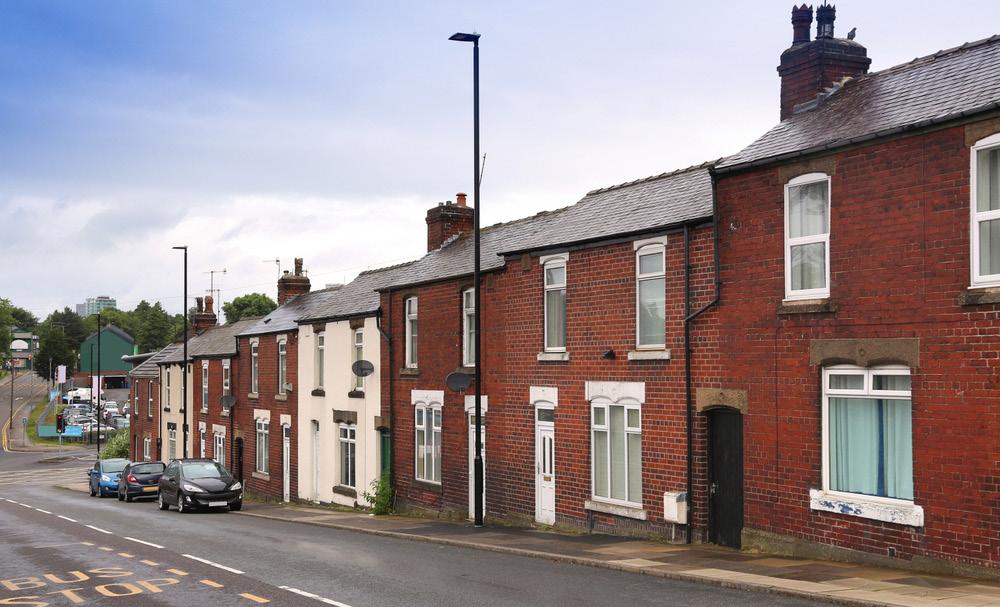
Despite the availability of funding schemes for energy efficiency retrofit, it has long been recognised that groups vulnerable to fuel poverty can be unaware of such schemes and unclear about the benefits of measures offered. In addition, the potential stress and anxiety that can result from home retrofit can often prevent low-income and vulnerable households from choosing to undertake work that would make their home warmer and healthier.
To combat this, National Energy Action is launching a two-year project piloting a locally based support service for fuel poor householders to help them retrofit their homes. The Community Retrofit Hub project aims to provide households with a trusted route to find out what funding schemes are available to them. Importantly, it will also provide in-depth support through the process of deciding what work will be most beneficial, and through the process of that work being carried out. The first two pilots will be in Burnley and Sheffield, with a further pilot to follow.
Each pilot will establish a team of two specialists within a local community centre where they will be accessible to householders and able to forge links with other organisations and services to generate concerted action in that area. The focus of their activities will be to:
• Engage and build trust with the community while identifying the needs of the people and their homes.
• Act in the best interests of householders to support them through a programme of home energy efficiency retrofit and provide aftercare.
• Run community events to show the benefits of retrofit technologies, and for householders to share their experiences of those technologies in their homes.
• Build partnerships and co-ordinate action locally to draw in retrofit funding, and fill gaps where necessary.
The end goal is that as many fuel poor homes as possible in the area will be improved so that they are more energy efficient, decarbonised where appropriate, and provide a comfortable and healthy living environment. There are already many effective local and community-based projects, and we aim to engage with and learn from these to stimulate concerted action using this wealth of existing knowledge of what works. This is an opportunity to look at how local retrofit support can have the greatest impact, and how energy efficiency retrofit schemes can be improved, all from the perspective of householders.
We will be disseminating learnings to help the government with any future decisions on strategies and scheme design. Please get in touch with Colin at colin.timmins@nea.org.uk

Support delivered on prescription: Warm Homes, Healthy Futures
National Energy Action Project Development Manager Danielle Butler explains how the Warm Homes, Healthy Futures project aims to improve health outcomes for fuel poor households through effective local partnerships
ational Energy Action’s Warm Homes, Healthy Futures is a nationally coordinated network of locally delivered services that will tackle fuel poverty and improve health for tens of thousands of people across Great Britain. The programme, which launched this year, enables effective partnership working between health, energy and housing in various local areas. The link between cold homes and unhealthy futures

NCold homes are disastrous for long-term health. In the UK this winter there will be 6 million households living in fuel poverty, unable to keep their homes warm, with 50% also coping with multiple cold-related health conditions. The situation is extremely costly for the NHS, with the estimated annual spend on treating the health impacts of cold homes exceeding £1.4 billion. This rises to more than £18 billion per year when factoring in wider societal costs. Each year, more than 10,000 deaths are attributable to living in cold, damp, poor quality housing – deaths that the National Institute for Health and Care Excellence says are preventable and avoidable.
Support delivered on prescription
Warm Homes, Healthy Futures will support people in more than 30 areas across England, Scotland, and Wales. These areas will see National Energy Action deliver support ‘on prescription’ by working with key partners in health and housing, alongside established and trusted local delivery agencies to reach people with health conditions, living in or at risk of fuel poverty. Such support includes:
• Energy-related advice and support
• Benefit checks and claim support
• Essential gas appliance servicing
• Provision of carbon monoxide monitors
Partnerships, insights and best practice
In establishing the network of Warm Homes, Healthy Futures services, National Energy Action and partners will work to support local health and housing bodies to harness critical insights and evidence the positive impact that fuel poverty services have.
Each year, more than 10,000 deaths are attributable to living in cold, damp, poor quality
• Support accessing the Priority Services Register
The programme also delivers frontline worker training, community engagement and awareness raising around key issues such as energy affordability, energy efficiency and carbon monoxide safety.
housing.
These insights will assess the Social Return on Investment, highlight best practice in delivery, and examine the benefits to health, as well as the lived experience of support. The programme will enable effective partnership working between health, energy and housing, working collaboratively at area-based levels to tackle health inequalities and fuel poverty as part of a shared agenda. Warm Homes, Healthy Futures will run until March 2026 and is funded by the Vulnerability and Carbon Monoxide Allowance. The programme is supported by the gas networks, Cadent, Northern Gas Networks, SGN, and Wales and West Utilities.
If you would like to learn more or are interested in getting involved, please contact Danielle Butler, Project Development Manager at danielle.butler@nea.org.uk
Photo: Kishivan/Shutterstock

The heart of what we do: National Energy Action’s Lived Experience Library
National Energy Action Insights and Impact Manager Jamie Rosenburgh showcases our new Lived Experience Library and shares a powerful case study.
At National Energy Action, people are at the heart of everything that we do. We directly support those who are experiencing fuel poverty, and we advocate to secure wider policy and regulatory outcomes that can both alleviate fuel poverty and prevent people from falling into it.

Behind every case that we take on is a person. And each person has a story. Stories that bring to the forefront the experiences and circumstances that can lead to someone needing support from us. Stories that show the difference we make. And stories that highlight the structural challenges and barriers that can remain. We believe that those stories and those people have power.
That is why National Energy Action has now developed an interactive Lived Experience Library – full of testimonies and lived experience accounts from those we support, and the advisers that work with them. It is a growing, filterable bank of case studies that demonstrate the causes and the reality of fuel poverty. They showcase the complexities of providing energy-related advice and support and the difference this can make to a life, as well as highlighting wider issues for the consideration of policymakers.
Currently, the library is being used as an internal resource within the charity. But we are keen to explore how to best share the insights it contains with our members, and to understand how our members can also contribute to this work. We will be providing more information on our new library in the near future. Please get in touch with Jamie at jamie.rosenburgh@nea.org.uk. In the meantime, we would like to share Maria’s story with you.
Maria's story
Maria has a young son and lives in a privately rented home. She has an income of less than £12,000 a year. She suffers from depression. Last year, Maria not only lost her mum, but she also suffered multiple strokes. This affected her daily life, memory, and ability to deal with household and financial affairs.
Maria’s struggles to afford energy significantly impacted on her mental health. This worsened when she was cold and was compounded by the impacts of her stroke recovery.
'I always felt cold, all the time. I couldn’t get warm at all.'
Maria was referred to National Energy Action for benefits advice.
The Universal Credit claim was successful, with Maria gaining nearly £5,000 per year, as well as £184.30 per week for PIP. Maria also received £3,000 in back pay. In addition, her adviser helped her to claim for Healthy Start Vouchers (worth £4.25 per week) and registered Maria on the Priority Services Register.
'The help I received off National Energy Action, I couldn’t thank my adviser herself, and all the people involved, enough. Oh, it’s made a lot of difference. I couldn’t even begin to say how much difference it’s made, to myself and my son. Because without all you guys, I wouldn’t have known about anything.'
Insights from the first round of Fuel Poverty Forums
National Energy Action Project Development Manager James Kowacz reports on what we’ve learned in the first round of Fuel Poverty Forums
ational Energy Action hosts regular Fuel Poverty Forums aimed at frontline service providers. Our current round of forums has been taking place throughout September in England and Wales. They examine practical and policy initiatives related to fuel poverty and delivering energy
efficiency solutions at a local, regional and national level. The regional forums have been a showcase for innovation, good practice and have promoted dialogue on a range of sectoral issues to help National Energy Action shape policy developments and campaigns. They are also an excellent opportunity to network with a wide range
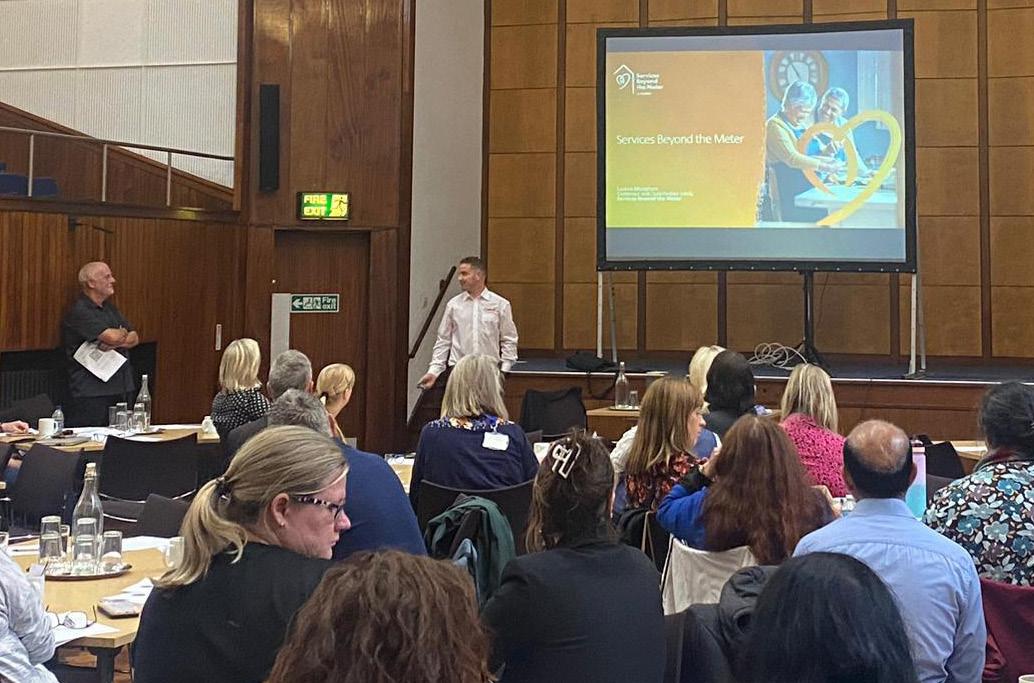
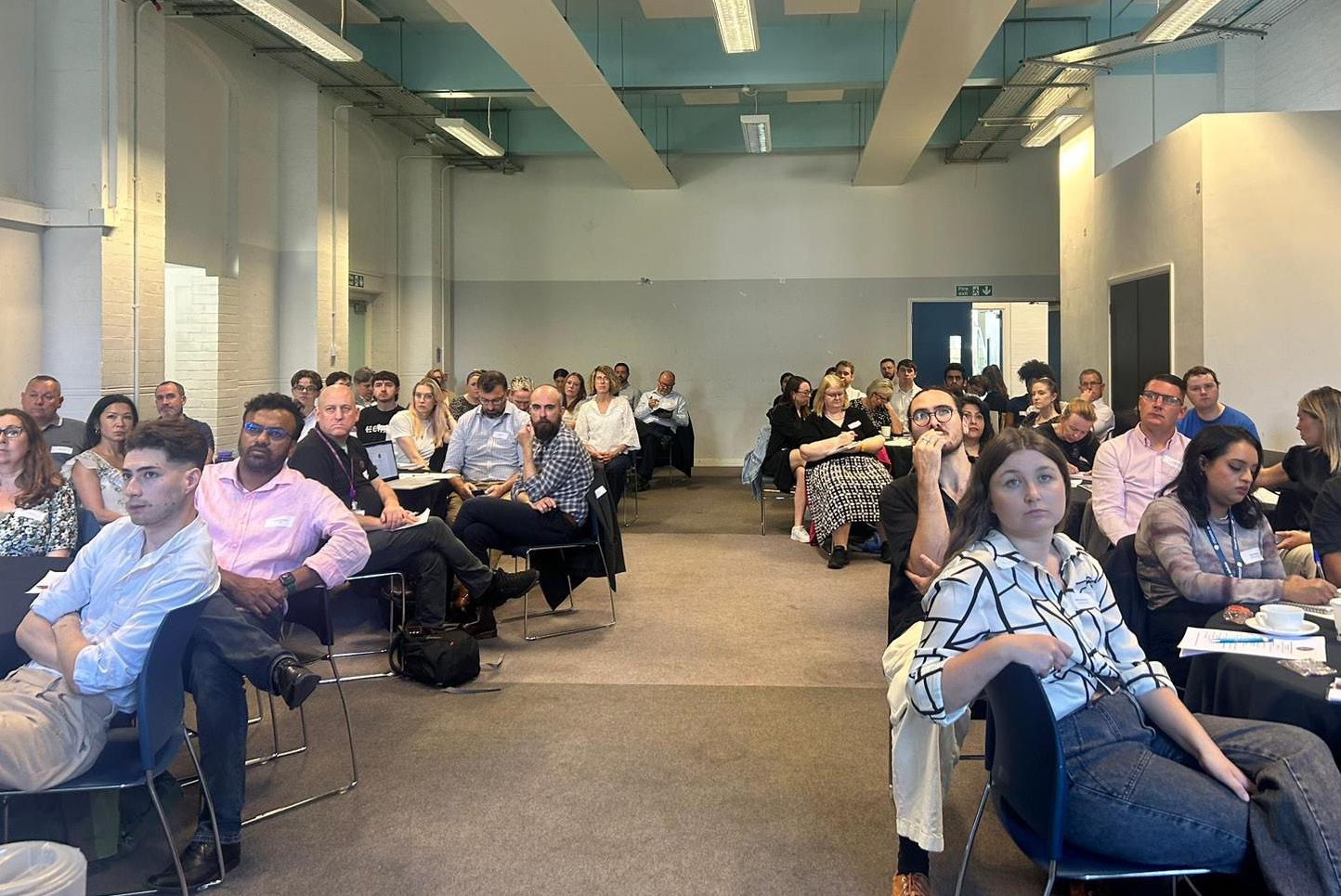

of organisations within the energy, fuel poverty and charity sectors. Innovation across the sector
Alongside our usual policy updates, we have seen presentations from organisations such as Groundwork Five Counties, who provide a Green Doctor service in the East Midlands and support people in their homes to stay warm, stay healthy and save money on their household bills. Switchee talked about their in-home display. It helps local authorities monitor temperature and humidity in their tenants’ homes to identify any vulnerable tenants at risk and act pre-emptively on their housing stock that might be at risk of mould and damp problems.
Cadent Gas Ltd also attended to showcase their Services Beyond the Meter initiative and explained how this supports vulnerable clients across their network area.
Labour’s Warm Homes Plan
At each forum, we hosted roundtable discussions with delegates to gather valuable insight from the frontline to help us support our policy and campaigns work to influence governments. One of the discussion themes concerned Labour’s Warm Homes Plan and what mechanisms delegates thought needed to be built into it to successfully enable those who are in, or at risk of, fuel poverty to improve energy efficiency of their homes to an adequate standard. Another discussion topic was about identifying vulnerabilities or communities that are overlooked when it comes to support. There was excellent discussion around all themes and a summary of these will be shared with all delegates who attended.
Our next forums will take place in 2025. Keep an eye on www.nea.org. uk/what-we-do/fuel-poverty-forums/ dates/ for dates. If you would like to discuss opportunities to contribute please contact: james.kowacz@nea. org.uk (England) or ben.saltmarsh@ nea.org.uk (Wales).
If you would like to find out more about corporate opportunities to support our Fuel Poverty Forums or our other activities, please contact partnerships@nea.org.uk

Get involved in the North East Fuel Poverty Alliance
National Energy Action Head of Research Helen Stockton highlights the work of the North East Fuel Poverty Alliance and shares information about the development of a new Citizens Panel
At the end of 2023, National Energy Action (NEA) held a launch event for a new North East Fuel Poverty Alliance (NEFPA), consisting of stakeholders working in frontline positions in the public or voluntary and community sectors across the North of England. With support from the Millfield House Foundation, this new alliance aims to establish a fuel poverty-focused coalition of grassroots North East organisations to inform the fuel poverty and energy policy debate.
As part of this launch, we also released a report ‘It’s Cold up North’ (www.nea.org.uk/researchpolicy/fuel-poverty-in-the-northeast/) alongside Citizens Advice Newcastle, providing a snapshot of fuel poverty and the energy crisis in the region.
Citizens Panel
NEFPA aims to shape and drive our policy aims and solutions on an ongoing basis with a specific focus on the North East of England. Similarly, and complementary to the Alliance, we are planning to launch a Citizens Panel later this autumn to engage with individuals with lived experience of fuel poverty. Initially this will be trialled in the North East region and we will use multiple recruitment methods, including through our own services and professional networks and stakeholder organisations.
Together, NEFPA and Citizens Panel aim to bring to the fore the practical expertise of grassroots and community organisations and lived experience of North East citizens. Using a place-based approach our ambition is to improve regional understandings of fuel
Save the dates for Fuel Poverty Awareness Day and our Conference
Fuel Poverty Awareness Day 2024
This year's Fuel Poverty Awareness Day will be taking place on 27 November. 6 million households will be in fuel poverty this winter, with a growing mountain of debt putting pressure on those least able to afford it.
This page, www.nea.org.uk/who-we-are/nea-campaigns/ fpad/, will be updated with information and resources in due course.
Please use the hashtag #FuelPovertyAwarenessDay and tag National Energy Action, and we will endeavour to share your resources.
If you have any questions or would like information about how to get involved, please email michael.potter@nea.org.uk National Energy Action Conference 2025
Our next Annual Conference will be taking place in Liverpool in January from 27-29 January. It will be a chance to meet up with and hear from other professionals in the fuel poverty space, as well as attend expert panel sessions on innovative new projects and discussions on solutions to fuel poverty. Go to www.nea.org.uk/conference25/ for more information and to join the mailing list to recieve any updates we send out concerning the conference.
poverty and to shape and drive policy insights and solutions. NEFPA meets three to four times per year and members will receive three bulletins a year on activities of NEFPA, member updates and review of National Energy Action’s work both in the region and nationally.
Call to action for members in the North East of England:
• Join us! If you are a grassroots organisation that works directly with citizens in the North East of England (from Northumberland to Teesside) and would like to find out more about the Alliance, or to join us, please get in touch.
• Already a NEFPA member? Join us for our next NEFPA meeting. It will be held virtually (via Teams or Zoom) on 23 October 2024 (10am-12pm). Please hold this date in your calendar. You should have already received your email to register your interest in attending but if not, please get in touch.
• Spread the word: Do you work with other local or regional community and grassroots organisations? Or would others in your organisation be interested in the Alliance? If yes, please feel free to get in touch at researchteam@nea.org.uk
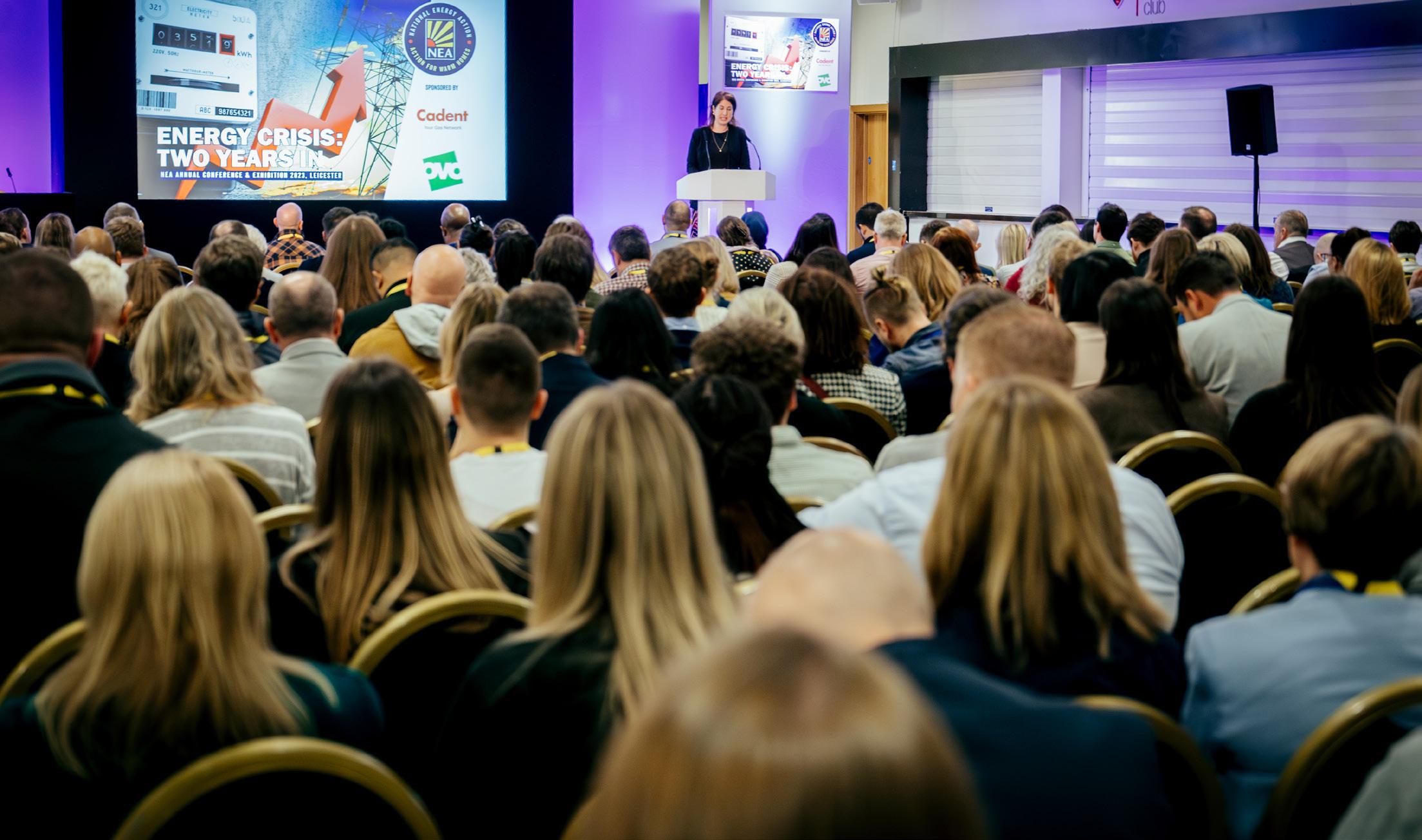

National Grid staff pack 300 Winter Warmth Support Packs in just one hour
Corporate volunteers at National Grid packed Winter Warmth Support Packs to help hundreds of vulnerable households stay warm and safe at home this winter
Over 70 National Grid employees volunteered to participate in a ‘packstravaganza’, supporting with the packing up of 300 Winter Warmth Support Packs in just one hour! It was a manic session, as seen in the photo, but the work undertaken by National Grid will make so many households a little more comfortable this winter. With energy bills going up 10% from October and the changes to the Winter Fuel Payment, these packs will offer help and comfort to so many households.
A previous recipient of a pack said, 'I feel very alone, vulnerable and scared nowadays. This pack was the equivalent of birthday and Christmas presents for me. You have no idea how cared for, and valued you made me feel.'
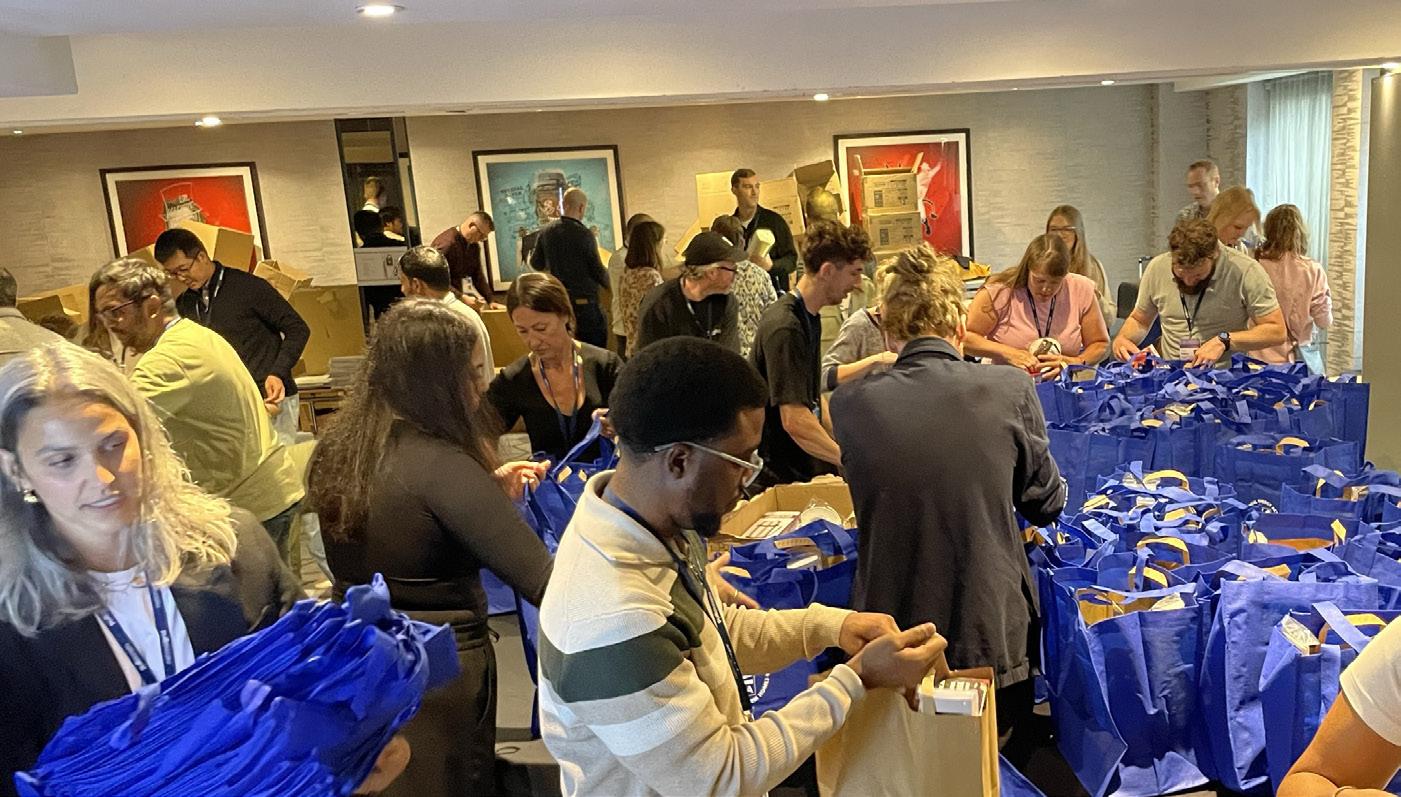
'I hope you do this every year': Family Fun Days provide entertainment and information
Our Project Development Co-ordinators organised family fun days with alpacas, reptiles and Cinderella impersonator for marginalised clients as part of the Warming Communities programme
As part of the Warming Communities programme, National Energy Action has been offering specialist and practical support to a range of partners whose clients are some of the most marginalised and disadvantaged in society. They often face barriers to accessing support from both statutory and non-statutory service providers. The Warming Communities programme has worked with clients who experience exclusion based on communication, culture, policy and health.
As a celebration of the partnership building achieved through the programme, a series of Family Fun Days were planned over the summer. Not only were these a chance to celebrate and enhance community togetherness, but by hosting these events our community advice teams were able to provide energy information to promote resilience ahead of winter.
The fun days were held in areas of high deprivation to support local families and children who might be struggling with the
cost of entertainment during the summer holidays. These events showed the value of collaborating with community partners and working with local suppliers to support small businesses and make the events a roaring success. We were visited by a Cinderella impersonator, a reptile handler, an alpaca and a play area on wheels in a double decker bus – making these even more special for the attendees.
The events were a huge success, reaching over 1,200 individuals across the country. Held mostly in the summer holidays, entertainment and food was provided for over 450 children, as well as energy awareness-themed activities put together by the National Energy Action training team.
One attendee at our Family Fun Day with Trowbridge Pantry said, ‘I hope you do this every year.’ Another at an event in the North East said, ‘Days like this don't happen around here.’

Photos: National Energy Action
Team NEA fundraisers take the 2024 Great North Run
On 8 September, 28 runners joined #TeamNEA to take part in the Great North Run and raise vital funds for our work.
The runners joined 60,000 other participants on the 13.1 mile route from Newcastle to South Shields, despite some miserable weather on the day.
After finishing this epic challenge, the runners joined us in the charity village to enjoy some much-needed post-run treats including homemade flapjacks, sweets and lots of cups of tea.
We are so incredibly proud of everyone who took part. A half marathon is no mean feat,


and this group did it with such determination after months of training and fundraising. We are hugely grateful for all of your efforts!
A big thank you must also go to the teams at Centrica and Chameleon who travelled all the way up to Newcastle to take part and fundraised an amazing amount of money to support fuel poor households across the country. Well done!


take on Run
If you or your team are interested in taking on the Great North Run in 2025, please get in touch with Michael to find out more: Michael.omalley@nea.org.uk For more information on our other running and challenge events, visit our website: www.nea.org.uk/support-us/ fundraise-for-national-energy-action/

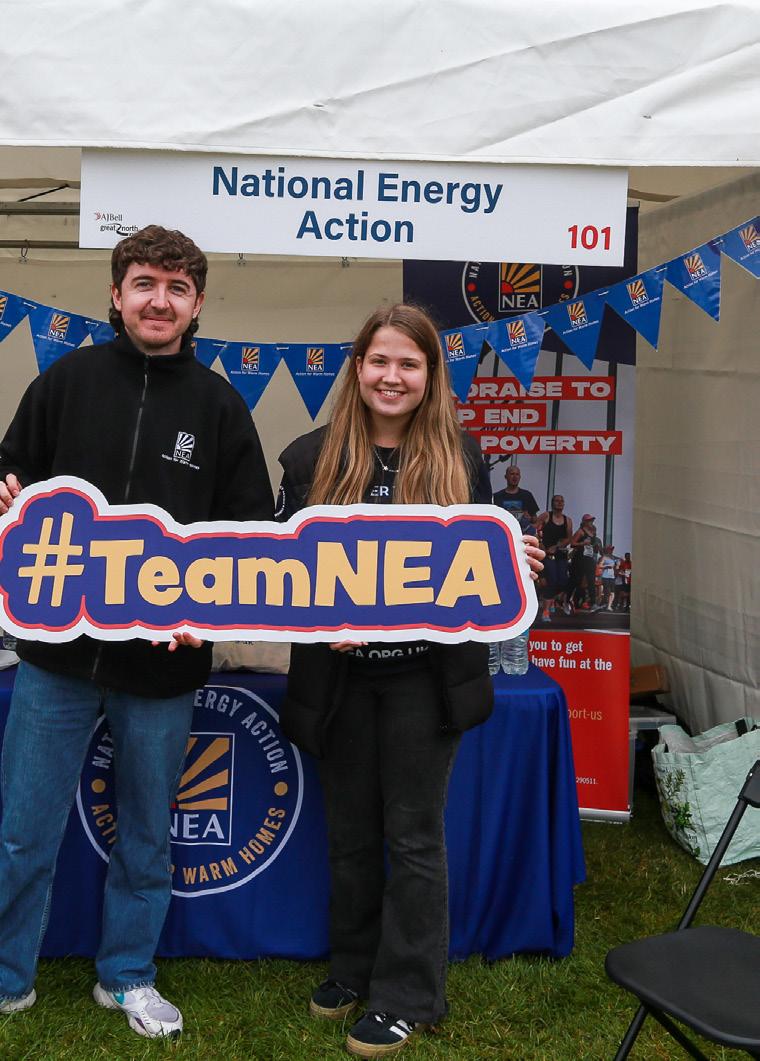

Rounders, golf and the Three Peaks
Companies have embraced creative ways to raise funds for National Energy Action, supporting us to fight fuel poverty
Skipton Building Society brought together staff and clients for a lively charity rounders day, creating a fun-filled event under glorious weather conditions. Skipton’s charity rounders day not only helped raise significant funds for National Energy Action but also provided a day of bonding and enjoyment for participants and spectators alike.
Siemens Energy took fundraising to the greens, hosting a massive charity golf day in Newcastle. Golf enthusiasts from across the company participated in this prestigious event, which featured challenging holes and opportunities for networking. The day brought together colleagues, clients, and industry partners who were passionate about both golf and making a difference. The golf day raised substantial donations, combining competitive play with a good cause. Siemens Energy’s event was both a fun day out and a powerful fundraising initiative, exemplifying how sport and corporate engagement can unite for a greater purpose.
Lastly, FairHeat took on one of the
most physically demanding challenges with 20 of their staff tackling the National Three Peaks. Their team courageously climbed Ben Nevis, Scafell Pike, and Snowdon, completing the challenge in under 24 hours. Battling fatigue and the elements, the FairHeat staff showcased determination and teamwork while raising funds for National Energy Action. The gruelling effort was a testament to their commitment, as they pushed themselves to the limit to ensure a brighter, warmer future for vulnerable households.
Together, these three companies highlighted the creativity and dedication of organisations using innovative fundraising efforts to support National Energy Action.
If these creative fundraising events have inspired you, why not gather your colleagues and take on a similar challenge? Whether it's hosting a sports day, a golf tournament, or tackling a physical feat like the Three Peaks, there are endless ways to raise funds for National Energy Action. Get creative, have fun, and make a real difference.
Keep an eye out for our campaigns this winter
Aswinter approaches, please keep an eye out for our upcoming campaigns, which aim to support the most vulnerable during the colder months.
One of our key initiatives is the Nation’s Biggest Housewarming, which will take place the week commencing 25 November. Keep an eye on your emails for more information on how to take part. Additionally, we’re excited to announce the return of the Walk for Warmth, taking place in February 2025 in Newcastle. This is a community-driven event to bring people together in support of those affected by fuel poverty. By participating in this walk, you will not only help raise funds but also show solidarity with those who are struggling to keep warm this coming winter.
If you don’t live in the North East, you can start your own Walk for Warmth in your local city, town or village by inviting some family and friends to take a 5km stroll around your local beauty spot. Simply record it on your Strava account and upload it to social media with the hashtag #WalkForWarmth and tag @ NEA_UKCharity for us to see and share your contribution to the event. There will be many other campaigns to watch out for! Your involvement is what makes them work. Your support is crucial, whether through raising awareness, donating, or spreading the word. Together, we can work together to make sure no one has to endure a cold home. Please stay tuned for more details on how you can get involved.
Photos: David Bousfield/Picture Perfect
Relational Mentoring Service provides relief to 3,000 households in Scotland
Wise Group shares the outcomes from its latest Relational Mentoring Service, which has provided targeted support to households across Glasgow, the Scottish Borders, South & North Lanarkshire, Inverclyde, and Renfrewshire
The Relational Mentoring Service, funded by the Scottish Government’s Fuel Insecurity Fund, is part of Wise Group’s broader effort to combat poverty and provide transformational support to the most vulnerable households.
Significant progress for economically inactive households
Since its launch in July 2023, the Wise Group's Relational Mentoring Service has supported 3,000 households, focusing on alleviating fuel poverty and addressing overall poverty. By implementing a holistic Relational Mentoring approach, the service has successfully contributed to sustained positive changes in the circumstances of vulnerable families across Scotland. The initiative aimed to offer transformational help, directly impacting the lives of parents and guardians and, by extension, alleviating child poverty.
Key outcomes from Relational Mentoring Service:
• Significant improvements in access to services and energy assistance. The most notable progress across all regions was seen in how people were enabled to access other services and energy assistance, with nearly half of all customers reporting improvements in these areas. This reflects Wise Group’s commitment to connecting individuals with vital services and helping them achieve greater energy efficiency and financial savings in their local communities.
• Multiple positive outcomes per household. Each household supported by the mentoring service achieved an average of nine distinct outcomes, engaged with the services 22 times, and participated in at least six activities. This comprehensive support highlights the impact of Wise Group’s efforts across these key regions, where participants have benefited from
meaningful engagement and positive change.
• Progress among economically inactive individuals. Economically inactive individuals made the most significant strides towards lasting change. This progress underscores the effectiveness of the mentoring, particularly in areas like Glasgow and Lanarkshire, in helping participants move closer to economic stability and independence.
• Support for households with children. Wise Group supported 1,473 households with children. Families across Inverclyde, Renfrewshire, and other regions gained significantly from increased awareness and understanding of available services and benefits, leading to improved financial stability, with many reporting increased incomes.
• Impact on low-income households. Households with annual earnings under £20,000 saw remarkable progress. Wise Group says this was driven by enhanced awareness of funding support, improved energy efficiency, and increased income, providing crucial support to those most in need, particularly in the Scottish Borders and other economically vulnerable areas. Immediate impacts and long-term change
These outcomes are a testament to the impact of the Relational Mentoring Service across Glasgow, Lanarkshire, the Scottish Borders, Inverclyde, and Renfrewshire. This initiative has not only addressed immediate needs like fuel poverty but has also provided comprehensive support to drive long-term change. Wise Group is incredibly proud of the progress made and is committed to continuing this vital work in these regions.

The Wise Group’s Relational Mentoring Service is designed to offer holistic support to individuals and families, helping them navigate challenges related to finance, employment, skills, community justice, and home energy. Through one-on-one mentoring tailored to the specific needs of each region, participants are empowered to take control of their lives and achieve lasting, positive change.
For more information about the Wise Group’s Relational Mentoring Service or to get involved, please get in touch with victoria_carson@thewisegroup.co.uk
About The Wise Group
The Wise Group is a leading social enterprise dedicated to transforming lives and communities across the UK. Through innovative programmes and partnerships, it provides support, training, and opportunities to those who need it most, helping to create a fairer, more inclusive society.
Photo:
Celebrating energy-efficient transformations: a community success in Immingham
E.ON Green Funding Solution and Thrift Energy retrofits one of the largest social housing projects in the UK with external wall insulation and ventilation improvements, as well as running a Summer Fun Fest for residents in the community
Residents in Immingham, northeast Lincolnshire, have seen a transformation as 292 homes were upgraded to become more energy efficient, marking a significant milestone in the UK’s journey toward sustainable living. This ambitious project, one of the largest Social Housing Decarbonisation Fund (SHDF) initiatives to date, was made possible through an £8 million government grant secured and match-funded by the housing association Lincolnshire Housing Partnership (LHP).
Cheaper bills and smaller carbon footprint
Delivered by E.ON’s Green Funding Solutions team, in partnership with retrofit specialist Thrift Energy, the project’s first phase has now successfully transformed these homes with external wall insulation (EWI) and ventilation improvements, making them warmer in winter and cooler in summer. The upgrades have also given the homes a modern appearance.
Summer Fun Fest
To celebrate the completion of these extensive works, a Summer Fun Fest was held on July 10, 2024. The community came together to enjoy outdoor games, ice cream, and traditional fish and chips. Residents and guests admired the transformed homes, and the celebration highlighted not just the physical upgrades but also the community's collective achievement in embracing a more sustainable future together. The impact of these upgrades extends beyond aesthetics and comfort. Residents of the Reed Mere estate are expected to save up to £290 (savings are based on July 2024 price cap prices for a gas-heated semi-detached home) annually on their energy bills, depending on their heating systems and energy usage. The improved insulation enables lower energy consumption, keeping homes warmer for longer while lowering heating costs. According to the Energy Saving Trust, these energy savings translate to a reduction of 880 kilograms of carbon emissions per household each year, contributing significantly to the UK's net zero targets.
A foundation for the future
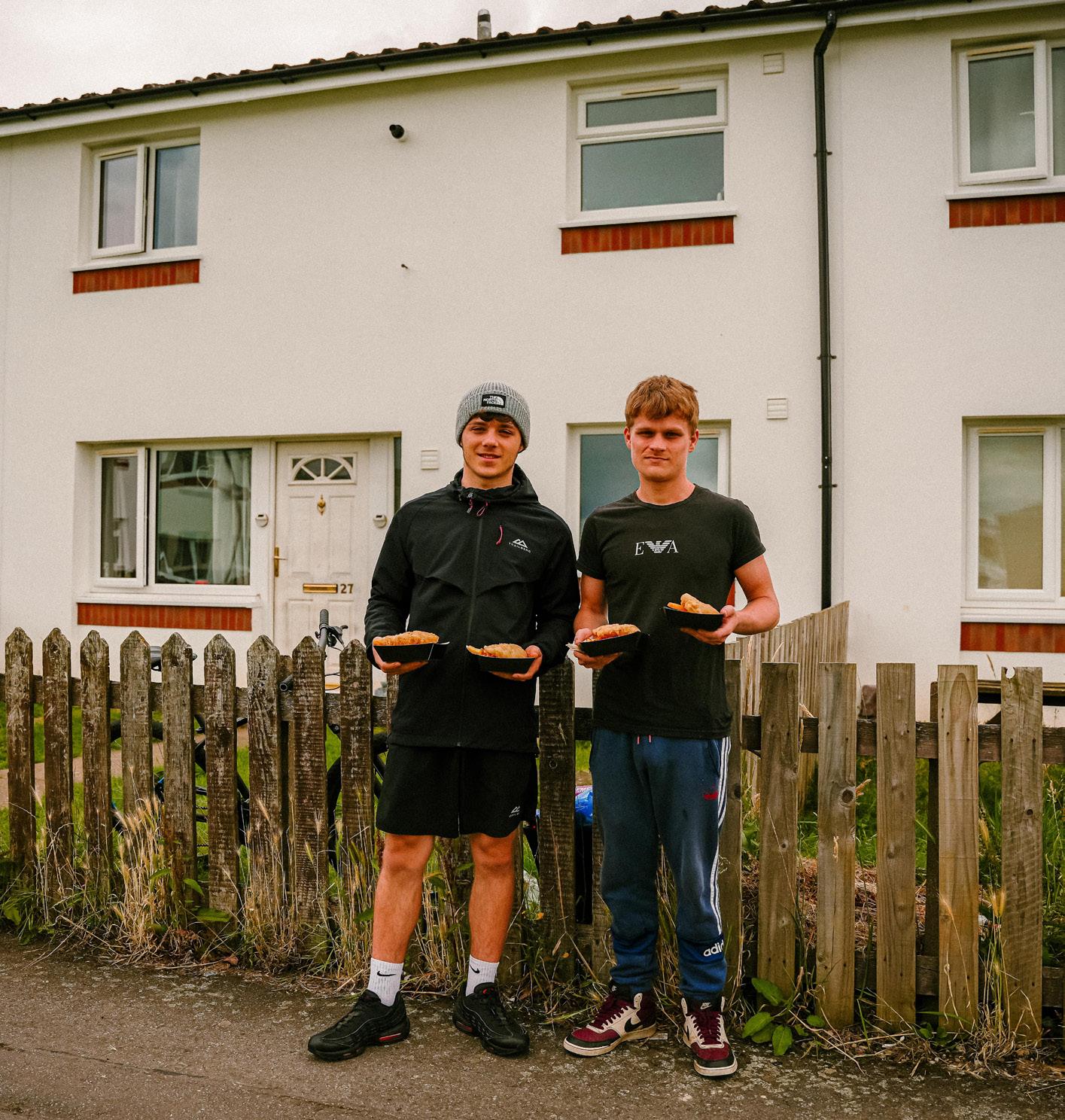
careers in the growing green energy sector.
The Reed Mere project serves as a powerful example of how the energy transition can be a force for good, bringing together diverse stakeholders to improve living conditions, reduce carbon footprints, and strengthen community bonds. As the UK continues to strive for a sustainable future, projects like this demonstrate that clean energy can be both affordable and transformative, benefiting not just the environment but also the communities it serves.
The project's success has laid a strong foundation for future initiatives. Phase two, already well underway, aims to upgrade an additional 329 houses in Grimsby and 119 flats across the two estates. This ongoing commitment to improving energy efficiency highlights the collaborative efforts of E.ON, LHP and Thrift Energy in driving the energy transition forward. Moreover, the project has been an educational experience for the local community, particularly for pupils from Eastfield Primary School. The children, who designed the site hoardings, learned about green energy and the benefits of insulation, inspiring potential future
E.ON Green Funding Solutions has been in the energy efficiency retrofit market since 2020, shaping and delivering governmentfunded energy efficiency initiatives, and installing thousands of measures throughout the UK across a total of 131 projects. Over the previous two years alone, E.ON has improved the lives of over 12,000 of the most vulnerable people in society, saving 200,000 tonnes of Co2 and an estimated £135m total lifetime cost savings.
E.ON’s full turnkey solution supports local authorities and housing associations with projects, from concept to completion. If you would like to find out more about the solutions and services E.ON Green Funding Solutions can provide, please contact ECObidteam@eon-uk. com or visit www.eonenergy.com/retrofit.html
Photo: E.ON
Winter Warmth Network: collaborating for impact this winter
Lightning Reach explains how the Winter Warmth Network has helped connect clients in need to vital support services and how it has been able to connect to a new set of households they had previously not been able to target
As the autumn approaches, the 6 million households in the UK facing fuel poverty are preparing for the financial strain that comes with the colder months. There is a wide range of support available for individuals, but the problem is often how to find it and navigate complicated application processes.
The Winter Warmth Network is a collaborative initiative aimed at tackling the urgent issue of winter vulnerability by providing timely and comprehensive support. This network brings together a broad coalition of support organisations, professionals and local authorities, working in unison to ensure that vulnerable individuals get the help they need throughout the winter season. At its core is Lightning Reach, an innovative online portal that connects individuals with over 2,500 financial aid programmes from housing associations, charities, local authorities, and more.
Lightning Reach will work with members to run communication campaigns, work with support providers to simplify and streamline grant applications, and host networking events throughout winter. This is all part of the mission to provide a platform for organisations to boost their support offering and reach more individuals.
We are able to reach a new set of people that we previously haven’t been able to target.
SHINE, a member of the Winter Warmth Network, has seen significant benefit in finding clients for their support scheme through this collaborative approach. ‘We are able to reach a new set of people that we previously haven’t been able to target,’ says Jobe, Energy Advice Manager. ‘Particularly those in work and digitally included, who previously would have found it more difficult to access our services.’
The network’s goals are clear – to reach more individuals in need and promote the wide range of support available, much of which goes unknown and underused. For the organisations who join the network, there is the opportunity to build a community and pilot collaborative approaches to encourage organisations to work together towards a common goal, maximising the collective impact.
Ren Yi Hooi, founder and CEO of Lightning Reach, says: ‘With over 130,000 people already seeking support through the Lightning Reach portal and more needing assistance with the energy price cap rising this winter, we are delighted to be working with partners across a range of sectors to tackle this winter. Through the Winter Warmth Network, we aim to join forces to simplify the journey for people to find and apply for vital support across the fragmented ecosystem and ensure they are connected with organisations that can help.’
Lendology CIC announces new partnership with West Yorkshire Combined Authority
Homeowners in Bradford, Calderdale, Kirklees, Leeds and Wakefield can now access low-cost loans for energy efficiency upgrades to help them stay warmer for cheaper in their homes.
As part of its ongoing mission to reduce fuel poverty and enhance energy efficiency, Lendology CIC is excited to announce its latest partnership with the West Yorkshire Combined Authority. This collaboration aims to make a substantial impact across the region, offering homeowners in Bradford, Calderdale, Kirklees, Leeds, and Wakefield access to low-cost loans for energy efficiency improvements and sustainable technologies. These measures include the installation of solar panels, energy-efficient heating solutions such as heat pumps, and essential home improvements like insulation and double glazing.
This partnership not only furthers Lendology CIC’s goal of making homes more energy-efficient but also strengthens its commitment to supporting local councils in their efforts to achieve regional carbon reduction targets. As part of this initiative, it is pleased to welcome Nandini Sharma as its new Community Engagement Officer. Nandini will play a pivotal role in reaching out to communities, connecting with National Energy Action members in the West Yorkshire Combined Authority area, and participating in local events to raise awareness about our low-interest loans.
Lendology CIC encourages National Energy Action members and other stakeholders to learn more about the West Yorkshire Home Energy loan scheme by visiting the dedicated webpage or contacting Nandini Sharma directly at nandini.sharma@lendology.org.uk
Committed to partnering with local councils
For nearly two decades, Lendology CIC has been committed to working with local councils to drive investment in private sector housing. As a B Corp-certified social enterprise lender, its focus is on creating meaningful social impact rather than generating profit. Since 2005, it has partnered with councils across the UK to provide responsible finance solutions that support homeowners, landlords, and empty property owners.
By leveraging council capital, Lendology CIC enables a wide range of home improvements, from climate retrofit measures to essential repairs. Every £1 invested by councils generates £2.38 in social impact, reflecting significant improvements in both physical and financial wellbeing for homeowners.
To learn how your council can partner with Lendology CIC, please visit www.lendology.org.uk/partners/become-a-partner/
CSE on giving smart energy advice to vulnerable customers
Centre for Sustainable Energy (CSE) considers how low-income and vulnerable households can benefit from the smart energy transition and how to avoid a two-tier system that would see these households miss out
To transition home energy from gas to renewable sources, we need to shift our energy consumption patterns. This means using more energy when renewable sources are abundant (e.g., when the sun is shining, or the wind is blowing) and less during peak times. Emerging smart energy schemes and technologies encourage these changes by offering people the chance to save money on energy bills.
Avoiding a two-tier system
However, many of these offers are either complex or require upfront investment, potentially excluding some consumers. For example, homeowners who can afford electric vehicles, solar panels or battery storage systems can take advantage of cheaper off-peak tariffs often not available to those relying on appliances like night storage heaters.
This disparity risks creating a two-tiered system where financial benefits are unevenly distributed.
Smart energy options should be designed with inclusivity at their core, ensuring that people on lower incomes or other vulnerable circumstances aren't left behind in the smart energy transition. These consumers should have equal access to financial benefits and support throughout this shift.
Smart and Fair programme
CSE’s Smart and Fair programme is developing insights and tools to support a fair energy transition. It focuses on:
• Monitoring and reporting on the smart energy offers available in the marketplace.
• Analysing diverse households’ engagement with smart energy.
• Increasing the reach and adoption of smart energy advice by consumers.
To increase uptake, CSE needs to understand the barriers faced by consumers and the challenges faced by advice organisations. CSE has already learnt a lot about both these things through its Smart Energy Action Plan (SmEAP) project.
SmEAP provides personalised advice to vulnerable customers in National Grid’s area. It matches their priorities, circumstances and capabilities with the smart energy options available. CSE finds that the main barriers to consumers adopting smart energy advice are:
• Distrust of smart meters, suppliers and new smart technologies.
• Complexity of and confusion around smart and low-carbon technologies.
• Limited time, energy and finances.
• Home or circumstances unsuitable for technology or offers (for example, lacking the network signal that smart meters require, no roof space for solar, older night storage heaters, prepayment meters, etc.).
• Lack of digital skills or access to the necessary technology (such as a smartphone or computer).
As for advice organisations, CSE is finding that the main challenges

to delivering an inclusive smart energy advice service are:
• Training staff on smart energy and how to communicate it in an engaging and accessible way.
• Identifying effective ‘easy wins’ for different client groups.
• Concerns about overwhelming staff and clients by adding to the number of topics to cover.
• The cost of offering smart energy advice and training staff.
Smart Energy Advice Forum
CSE and National Grid are hosting a workshop for energy advice organisations and industry stakeholders, such as DNOs and Ofgem, to think about what changes could overcome the above challenges.
CSE is particularly keen for energy advice staff to share their insights from supporting customers in vulnerable circumstances. It is a hybrid event so that travel isn’t a barrier to getting input.
CSE would also like to hear from managers and decision-makers about how their teams are adapting, and what more could be done to support them.
The ‘Smart Energy Advice Forum’ is on Wednesday 16 October, from 10am to 2:30pm. It will be in-person, in Bristol, as well as online.
Photo: Centre for Sustainable Energy
British Gas Energy Trust offering £1,700 energy debt grants for pensioners
Amid changes to the Winter Fuel Payment and energy prices rising from October, British Gas Energy Trust encourages pensioners with energy debt on their accounts to apply for energy support this winter
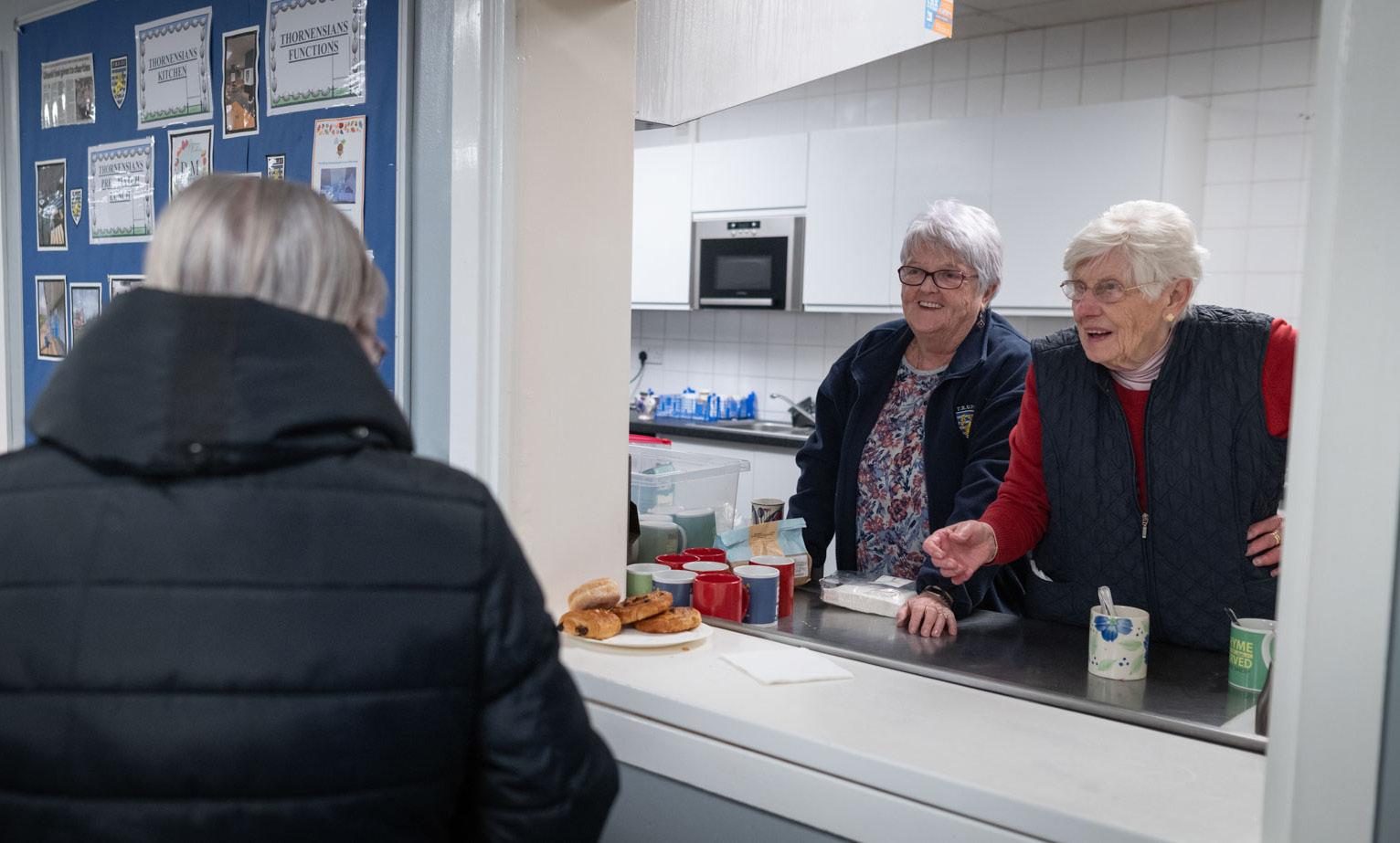
TheBritish Gas Energy Trust is now offering energy debt grants up to £1,700 for both British Gas and non-British Gas customers with debt on a credit or prepayment meter account.
The reopening of the Individuals and Families Fund will be welcomed by many, at a time that changes to the Winter Fuel Payments mean an estimated 10 million elderly people are no longer eligible for this form of state support.
Only pensioners in England and Wales who are in receipt of any one of Income Support, Income-based Jobseeker’s Allowance, Income-related Employment and Support Allowance, Pension Credit or Universal Credit will receive a Winter Fuel Payment of between £100 and £300, subject to eligibility conditions.
In 2023-24, the Trust was able to support over 5,300 households with more than £7.8 million in energy debt grants, with 5.6% of those who received a grant aged over state pension age.
One client to receive support was Miss D (name changed to protect client’s identity), a single pensioner renting a property from her local authority. Miss D had recently had a stroke and while recovering in hospital was diagnosed with heart failure.
Her daughters discovered her energy debt when sorting through her bills. Miss D received money advice as part of her application, and can manage her future energy charges having received an £115 grant from the Trust to clear her arrears.
Chief Executive Officer of the Trust Jessica Taplin said:
‘We encourage applications to the Individuals and Families Fund from anyone that needs support with their energy debt. The change in eligibility criteria for the Winter Fuel Payments, coupled with the energy price cap increase from October, means more people might find themselves struggling with their bills as we head towards winter. This fund will help us support as many eligible households as possible across Britain, whether British Gas customers or otherwise.’
As part of its support package, the Trust also funds 41 money and energy advice projects in community-based charities and social enterprises across Britain. These projects provide clients with free and impartial advice on budget planning, benefits and income maximisation checks, energy efficiency measures and generalist subjects such as housing, employment and mental health support. About the Individuals and Families Fund
The Individuals and Families Fund provides energy debt grants to households with up to £1,700 in debt on a credit or prepayment meter account. Before applying, you must receive money guidance from a money advice agency or use the online budgeting tool available as part of the application. The fund is open to British Gas and non-British Gas customers, but if your energy supplier has its own support fund, you will be unable to apply. There are other criteria that must be met, please check the website for further details.
YES Energy Solutions and IE Hub team up to help customers in fuel debt
Community Interest Company YES Energy Solutions to offer energy saving advice to IE Hub users to help them with their fuel debt, as well as supporting IE Hub customers to access free funding for home improvements
IE Hub, the online money management platform, has partnered with YES Energy Solutions to offer householders help with their energy debt, as well as supporting those who are spending a lot on their fuel bills with energy saving tips and access to energy efficiency installation grants.
The two-way partnership will mean that on a monthly basis, around 1,500 YES Energy Solutions customers will be asked a series of questions to see if they would benefit from using IE Hub to manage their household budgets. Customers will then be referred between the two organisations to get them the tailored support they need.
We
‘YES Energy Solutions helps thousands of homeowners and tenants save energy and, therefore, save money on bills, while we at IE Hub are all about helping our customers manage their money better. Working together, we are likely to benefit a lot of people in need and help our customers reduce their carbon footprint at the same time.’
are each speaking to similar types of householders, who, through our collaboration, will now get more comprehensive support.
IE Hub’s online budgeting tool will identify its users who are spending a significant amount of their income on energy bills and encourage them to share their budget with YES Energy Solutions. In turn, YES Energy will offer advice to help them reduce their energy costs, as well as supporting IE Hub customers to access free funding for home improvements to permanently reduce their energy bills.
Bethanie Kennedy, Partnership Manager for IE Hub, said, ‘This is a perfect partnership for both IE Hub and YES Energy Solutions, as both companies are driven to help our customers save money in the long run.
Alex Wilkes, Commercial Director at YES Energy Solutions, said, ‘Our entire mission at YES is to alleviate fuel poverty by helping customers in vulnerable situations to reduce their energy bills and improve the warmth of their homes.
‘We’re delighted to be linking up with a likeminded organisation in IE Hub who have tailored support for customers as their first priority. We are each speaking to similar types of householders, who, through our collaboration, will now get more comprehensive support. Thanks to this partnership, we’re providing people with the financial and debt support they need, alongside energy efficiency advice and grants. Most importantly, the recipients are feeling happier, healthier and more confident managing their energy as a result, which is a fantastic thing to be a part of.’
More information about Yes Energy Solutions can be found here: www.yesenergysolutions.co.uk/ and to find out more about IE Hub visit: iehub.co.uk/customer/
Keeping Warm & Wise with Age UK Nottingham & Nottinghamshire and Age UK Leicester Shire & Rutland
Age UK Nottingham and Leicester Shire & Rutland on helping prepare clients for winter through advice, income maxmisation, energy efficiency measures and insulation referral.
Warm & Wise is a free service delivered via a consortium of Age UK Nottingham & Nottinghamshire and Age UK Leicester Shire & Rutland.
This service is open to anyone 50+, across all tenures, Warm & Wise seeks to empower and educate energy consumers, so they’re warmer and wiser about energy.
By increasing understanding and knowledge on how to be more energy efficient, consumers can reduce energy consumption and bills and maintain a healthy temperature at home.
Warm & Wise Home Energy Advisers can offer information, signposting and advice via telephone, email, or home visits.
During a home visit the Home Energy Advisor will use an individualised whole house approach to give advice and information. They can fit small measures such as draught excluders, light bulbs, and timers, and may be able to provide support to enable better control of the temperature within the home, address minor repairs and refer to support with boilers, central heating and insulation.
Warm & Wise aims to help to maximise income through welfare benefit checks, reduce fuel poverty and ensure that fuel debt and disputes are addressed.
Warm & Wise will continue until 2026, which means that local people aged 50+ across the two counties, will continue to benefit.
100% of service recipients said they would recommend the service to family and friends.
‘Gave me lots of great advice and support with heating and lights. The information and leaflets were very interesting, thanks for your support.’
‘Explained about home energy saving and gave advice on how to keep the house warm and save energy.’
For further information contact:
Age UK Nottingham & Nottinghamshire 0115 859 9209 or warmandwise@ageuknotts.org.uk
Age UK Leicester Shire & Rutland 0116 261 4604 or warmandwise@ageukleics.org.uk
Switchee’s Energy Voucher service helps social housing tenants in fuel poverty
A new approach to tackling fuel poverty following shocking new fuel poverty and mould statistics. Switchee's Energy Voucher service to directly support residents identified as most at risk of fuel poverty and mould conditions...
Switchee,
a British tech start-up aiming to improve the lives of those in social housing, defines fuel poverty as homes that have not reached a temperature of 18 degrees for more than half of the last 30 occupied days. According to data and insights from Switchee, fuel poverty under this definition is set to affect one in fourteen social homes this winter.
As such, Switchee is heavily focusing on this issue. This is particularly pertinent in the context of the Labour government’s Warm Homes Plan and its desire to slash fuel poverty.
There is a direct link between fuel poverty and mould growth in homes, which exacerbates health conditions further. Fuel poverty itself is debilitating for residents, and mould presents a highly problematic additional danger. Last winter, Switchee’s Housing Fuel Poverty Index estimated that fuel poverty in the social housing sector led to 9,314 additional NHS admissions, costing £29.7m overall, enough to cover 36,706 heating bills.
The Switchee device is a touch screen, internet-connected, smart thermostat installed in social houses that allows residents to control their heating and hot water. Shocking new data obtained from over 30,000 social homes demonstrates that 44% of households at high risk of fuel poverty have dangerously mould-inducing conditions in their home. This compares to just 14% of the average social home in Switchee data.
Energy Voucher service
To tackle this, Switchee has recently introduced its end-to-end Energy Voucher service to work side-by-side with housing providers, directly supporting residents identified as most at risk. Switchee says this is a unique, cutting-edge approach to tackling fuel poverty and mould, and capitalises on the Switchee devices’ ability to detect households in fuel poverty, sending residents who say ‘yes’ a link to an energy voucher on their device within 48 hours of confirmation. The approach is both targeted and direct, as well as empathetic and effectively measured, and is a service undertaken by Switchee without any additional charge to housing providers with devices installed in resident homes.
The Energy Voucher service addresses underheating by identifying residents whose homes have not reached 18 degrees in any of the last 30 occupied days. It provides a systemic solution for mould caused by inadequate heating.
The service provides four key benefits:
• Providing comprehensive fuel poverty and underheating relief. The service's end-to-end function significantly reduces administrative burdens for housing providers and cuts through the barriers presented by calls, forms and in-person visits.
• Targeted support for those residents who are most ‘at risk’ by leveraging real-time data to determine the households who have the greatest need for voucher support. This includes the ‘silent voices’, defined as those who are afraid to voice their concerns in case this impairs relationships with landlords. Switchee aims to reach out directly to these
residents to ensure they feel comfortable receiving fuel poverty vouchers to help properly heat their homes.
• Vouchers are delivered directly to residents' devices, ensuring discreet and respectful support for those who need it most.
• Switchee provides an end-of-campaign report detailing the impact of energy vouchers on fuel poverty and mould conditions, both overall and on individual homes. This report supports Social Value and ESG reporting, offering clear evidence of the impact relative to the funds invested.
Switchee looks forward to growing the service to support the new government’s Warm Homes Plan and its aim to slash fuel poverty.
£6 million programme to support those in fuel poverty
Groundwork and Cadent Foundation on the new £6 million, three-year Stay Warm, Stay Well programme.
Stay Warm, Stay Well aims to provide much needed help for households who are struggling with their energy bills. Groundwork Green Doctors –energy efficiency advisers – will visit homes and offer practical guidance on energy saving, behaviour change tips and referrals to other local support services, including debt advice and food banks.
Over the course of the three-year programme, over 14,500 consultations will take place in regions across England, with a particular focus on vulnerable households.
In addition to the Green Doctor support, the programme is also funding an initiative to support the creation of new energy advisers, via a 12-month traineeship, through the Green Doctor Academy. This scheme aims to create more accessible pathways into work, in particular, for those who are unemployed or economically inactive, people with disabilities or individuals from an ethnically diverse background.
Graham Duxbury, Groundwork’s UK Chief Executive, said: 'We’re delighted that the Cadent Foundation is able to provide strategic, multi-year support for our Green Doctors, which will help us expand our service to more people and ensure we have a workforce able to meet growing demand.'
Julia Dwyer, Director of the Cadent Foundation, said: 'We truly believe that a solid knowledge of how to optimise the energy efficiency of a home, is the key to alleviating fuel poverty in the long-term and the next stage in our partnership will allow us to expand the programme even further, increasing our involvement and doubling the amount of funding to help even more families.'
Find out more: www. groundwork.org.uk/stay-warmstay-well
The work of North Lancashire Citizens Advice's energy champion
Sammy, Citizen’s Advice North Lancashire’s Energy Champion on their work assisting people across the county
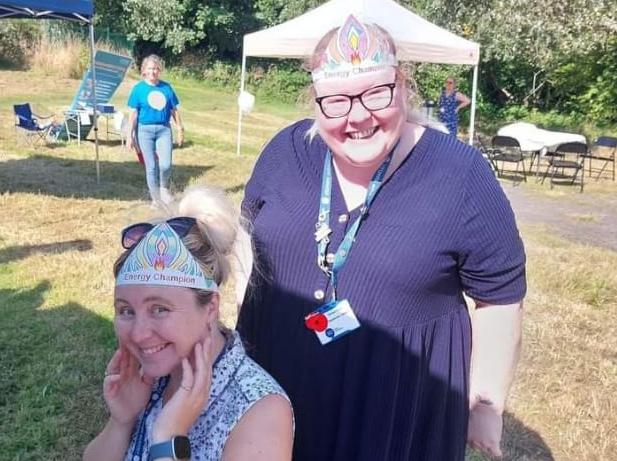
AtCitizens Advice North Lancashire, Sammy serves as the Energy Champion, focusing on energy advice, savings and safety. Sammy's role involves attending community events, such as coffee mornings, fun days, and outreach sessions, to tell people about energy-related assistance. This includes discussing grants, financial support options, and energy-saving ideas, as well as helping with understanding complicated energy bills.
Sammy's primary responsibilities include promoting Cadent’s Priority Services Register and assisting clients with high energy bills. Sammy helps clients join the Priority Services Register, explaining the crucial benefits it offers, particularly for vulnerable individuals. The support provided through the register is often life saving, especially for those with specific needs related to energy access and safety. Sammy ensures clients understand how this service can help them secure more affordable energy plans or alternative repayment options that suit their circumstances.
Sammy also plays a key role in educating the community about carbon monoxide (CO) safety, emphasising the
importance of CO detectors and raising awareness about the dangers, signs, and symptoms of CO poisoning. Sammy conducts informative sessions at local pop-up events and visits primary schools to engage children on this critical issue. During these school sessions, Sammy ensures the material is interactive and engaging. Students participate in activities, such as a drawing competition where they create their own version of a ‘Carbon Monoxide Monster’ with small prizes awarded. The children also watch ‘Safety Seymour’ videos, and get certificates for participating, reinforcing the importance of CO safety.
Recently, Sammy has been addressing issues related to the Winter Fuel Payment changes, which are expected to negatively impact many pension-age residents in the area. Sammy works to support these residents by helping them access additional energy bill support and checking their eligibility for Pension Credit. This service is especially important now, as Pension Credit is currently under-claimed and is now a requirement for receiving the Winter Fuel Payment.
Training with National Energy Action
National Energy Action offers a range of learning options relating to fuel poverty, energy efficiency, decarbonisation, and more. Our courses are available in a variety of formats including e-learning, webinars and face-to-face for flexible and convenient learning.
Learning options include:
Qualifications
• Level 2 Award: Fuel Debt Advice in the Community 6281-16
• Level 2 Award: Introduction to Domestic Renewable Technologies in Decarbonising Energy Use in the Home [NEW]
• Level 3 Award: Energy Awareness 6281-01
• Level 4 Award: Decarbonising Homes: Technologies, Impacts and Solutions
Short introductory level courses
• Changing Energy-related Behaviour
• Living with the Energy Crisis: Providing advice to Vulnerable Clients
• Delivering High Quality Domestic Energy Advice
• Fuel Poverty and Health Introduction to Domestic Energy Efficiency
• Overview of Domestic Smart Meters and the roll out
• Smart Meters: Getting the most out of the in-home display
• Paying for Fuel
• Tackling the Cold
• Understanding Fuel Poverty and Health: Impacts on Mental Health
• Vulnerability in the Energy Market
• Bitesize Learning: Identifying Customers in Vulnerable Situations
• Bitesize Learning: 'How to look after your mental health and stay well'
• COMING SOON: 'Supporting customers in the water and energy sectors'
Bespoke courses
Can be developed upon request
For more information go to www.nea.org.uk/ training
Photo: Citizens Advice North Lancashire
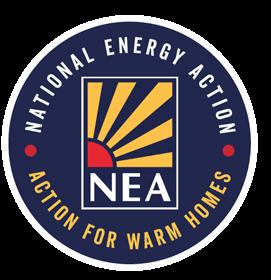
JOIN THE CONVERSATION

Twitter: @NEA_UKCharity

Instagram: www.instagram.com/nea_ukcharity

Linked In: www.linkedin.com/company/national-energy-action

Facebook: www.facebook.com/nationalenergyaction
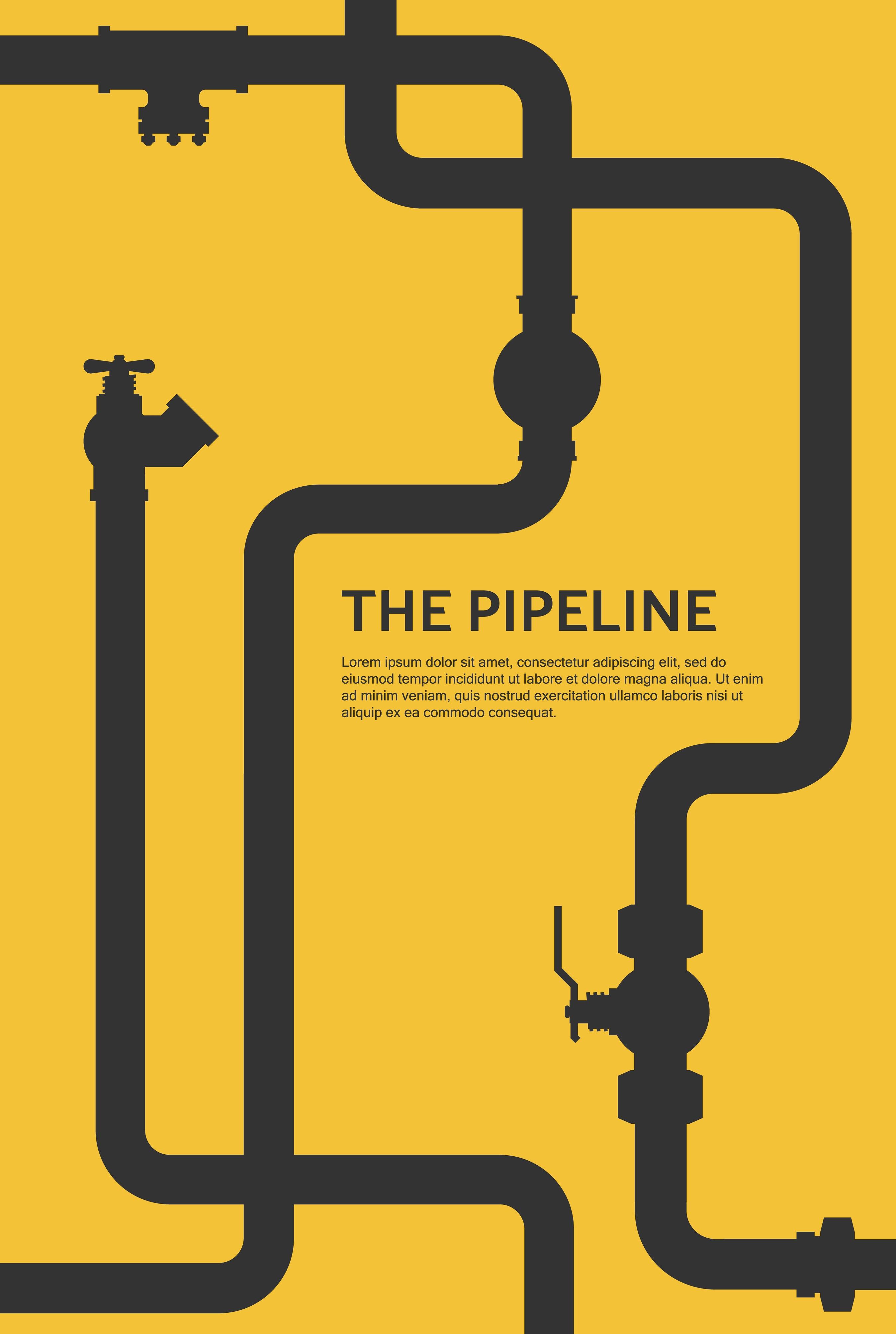
NATIONAL ENERGY ACTION
National Energy Action, the fuel poverty charity, campaigns so everyone can afford to live in a warm and safe home. This is something denied to millions because of poor housing, low incomes, and high bills. Working across England, Wales and Northern Ireland, everything we do aims to improve the lives of people in fuel poverty. We directly support people with energy and income maximisation advice and we advocate on issues including improving the energy efficiency of our homes. We do not work alone. Partnerships and collaboration have been at the heart of NEA for over 40 years, helping us drive better health and wellbeing outcomes for people struggling to heat their homes.
WHERE TO FIND US
Email: focus@nea.org.uk
Web: www.nea.org.uk
NEA is an independent charity, Registration No. 290511. Company limited by guarantee. Registered in England, No. 1853927 Registered office: Level 6, West One, Forth Banks, Newcastle upon Tyne, NE1 3PA Tel: 0191 261 5677
Illustration: Indigo Design/ Shutterstock
